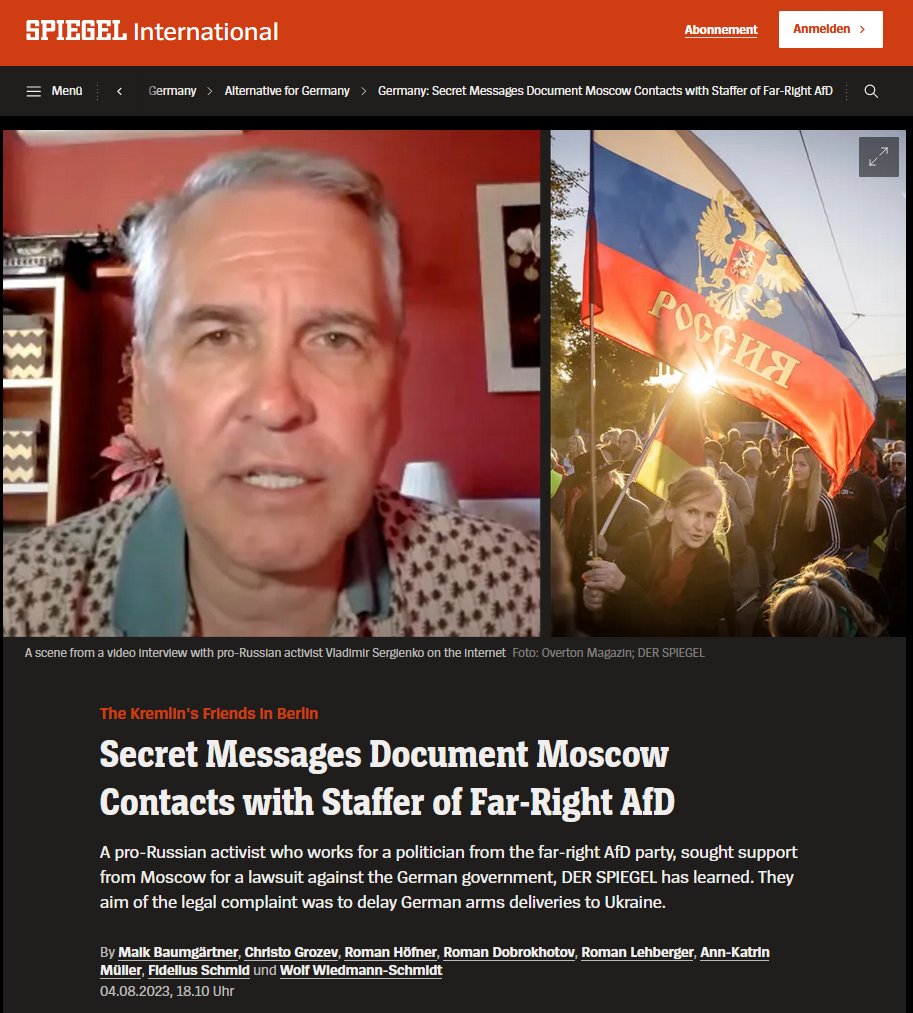In today's #vatniksoup, I'll talk about a hybrid warfare strategy I call the Migration Bomb. It's a strategy in which countries like Russia and Belarus organize immigration from relatively poor regions to EU and Schengen areas.
1/17
1/17

Since Aug 2023, there's been an uptick in asylum seekers on eastern border of Finland. Russian officials didn't previously allow travel from Russia to Finnish border crossings without the necessary travel documents, but recently all this changed.
2/17
2/17

To understand what's going on, we have to go back to year 2015, when 1,3 million people - mostly from Syria, but also from Afghanistan, Nigeria, Pakistan, Iraq and Eritrea - came to Europe, requesting asylum.
During that time, Finland received 30 000 asylum seekers.
3/17


During that time, Finland received 30 000 asylum seekers.
3/17


Most of these immigrants crossed the Mediterranean, but at some point FSB started allowing people to cross from Russia to Norway and Finland.
Both countries saw several hundred irregular border crossings every day. Since it's illegal to drive from Russia to Norway or...
4/17


Both countries saw several hundred irregular border crossings every day. Since it's illegal to drive from Russia to Norway or...
4/17


...Finland without a permit and crossing by foot is prohibited, Russian officials and smugglers provided the asylum seekers with bicycles.
We now know that this 2015 operation was a countermeasure for the Western sanctions against Russia after the annexation of Crimea.
5/17


We now know that this 2015 operation was a countermeasure for the Western sanctions against Russia after the annexation of Crimea.
5/17


Immigrant smuggling was big business, and back in 2015 Syrian asylum seekers paid at least 3000 USD for a relatively safe passage to Europe. These smugglers and criminal organizations were often connected to organized crime, including Italian Mafia.
6/17


6/17


In 2021, Belarus, a puppet regime of Russia, started their own migration bomb against Poland and the Baltic states. This crisis was triggered by the worsening of Belarus-EU relations following the 2020 Belarusian presidential elections and the 2020-2021 protests in Belarus.
7/17


7/17


In Jul 2021, Belarusian dictator Lukashenko threatened to "flood" Europe with "drugs and migrants". Soon after this, Belarusian tourist agencies started advertising in the Middle East, promoting a hassle-free entry to the EU and its countries with good social welfare system.
8/17


8/17


Minsk quickly doubled flights from Baghdad & Iraqi travel companies started massive campaigns, promoting cheap flights to Minsk. Many "tourists" arrived and then tried to enter Europe through Lithuania, Poland or Latvia. Belarus even provided them with wire cutters & axes.
9/17



9/17



We can safely state that Russia is now waging similar hybrid warfare against Finland, most probably due to Finland's recent NATO membership and military aid to Ukraine. The process most probably goes as follows: Russian intelligence agencies are promoting opportunities to..
10/17
10/17

...enter Europe via Russia with cheap flights and transportation to the border. These opportunities are also advertised on social media platforms. They are then provided with instructions on how to gain the status of an asylum seeker,...
11/17
11/17

...put into cars that drive them to the border after which they attempt to cycle across the border crossing to Finland. They are not allowed to stop in any of the towns before the border, and Russian official do nothing to stop them from crossing the border over to Finland.
12/17


12/17


On 18 Nov 2023, Finland decided to close four of it's border crossings & made asylum seeking possible only in two crossings further up north. Finance Minister Riikka Purra said Thursday that Finland was ready to close all crossing points on the Russian border if necessary.
13/17




13/17




The parties that benefit from these hybrid operations are Russia, criminal organizations and the smugglers who exploit the people in poor regions in the Middle East and in Northern African countries. They also exploit European refugee and immigration policies.
14/17
14/17
But this also helps pro-Kremlin, anti-immigration political parties like the German AfD, that then use anti-immigration rhetoric and populism to gain more popularity. In Aug 2023 survey, 20% of Germans stated that they'd vote for the far-right AfD.
15/17


15/17


Russia has already used the closing of border crossings as a propaganda weapon, and on 19 Nov 2023 Russians living in Finland organized a protest against the closings. I wonder how many pro-Ukraine rallies these "good Russians" have attended while living in Finland?
16/17
16/17
Also, we shouldn't forget that Russia was creating the original European immigration crisis in 2015 with their involvement in the brutal, bloody & ongoing Syrian Civil War, in which they've bombed hospitals & civilian targets, and even murdered people with chemical weapons.
17/17


17/17


I have paused personal donations for now, please support @U24_gov_ua by donating to the #HopakChallenge:
https://twitter.com/P_Kallioniemi/status/1725576954475114682
• • •
Missing some Tweet in this thread? You can try to
force a refresh

































